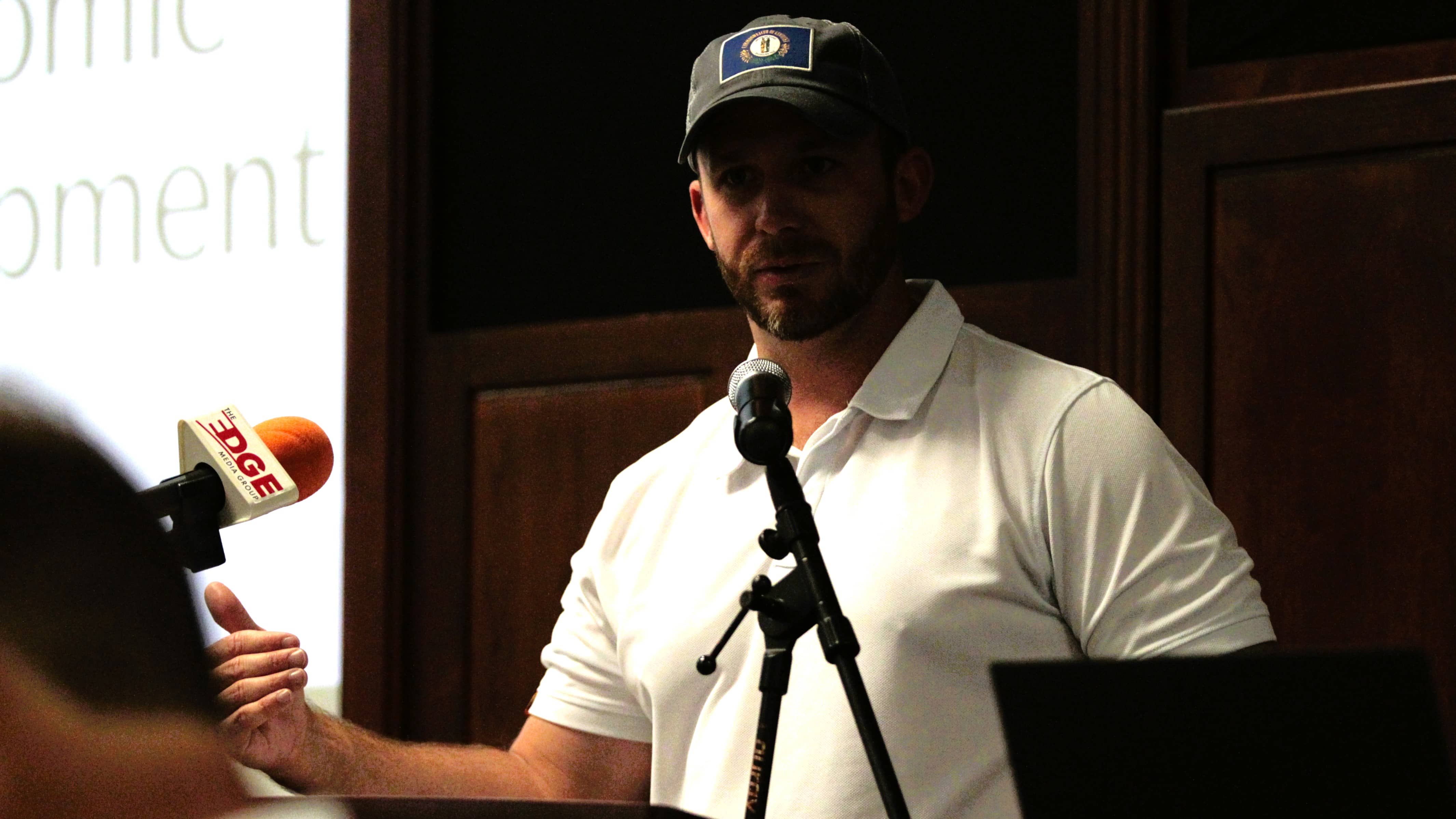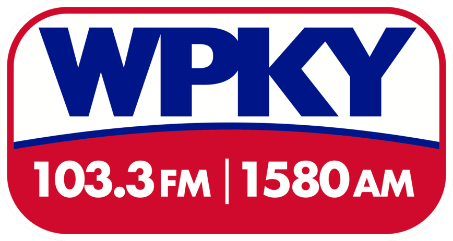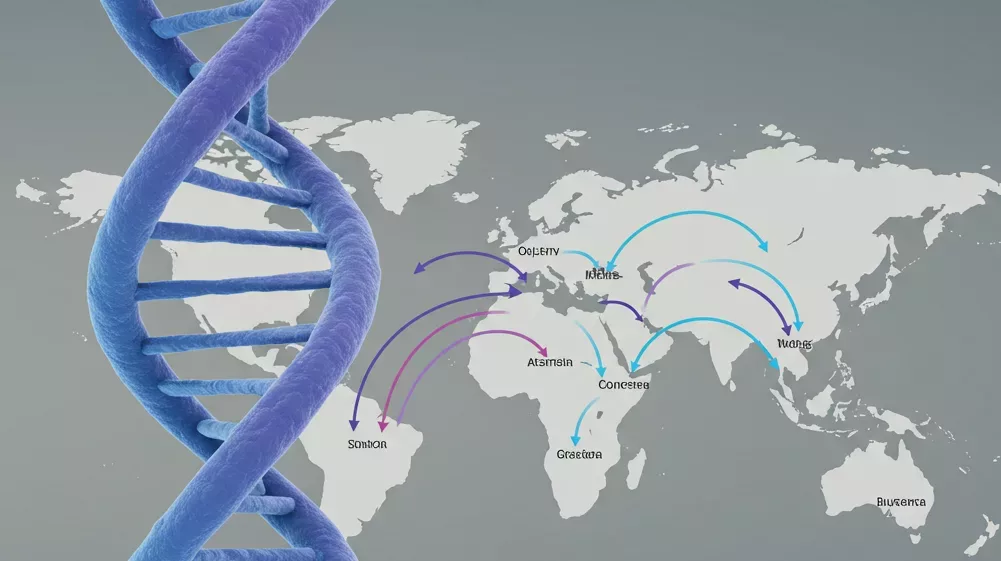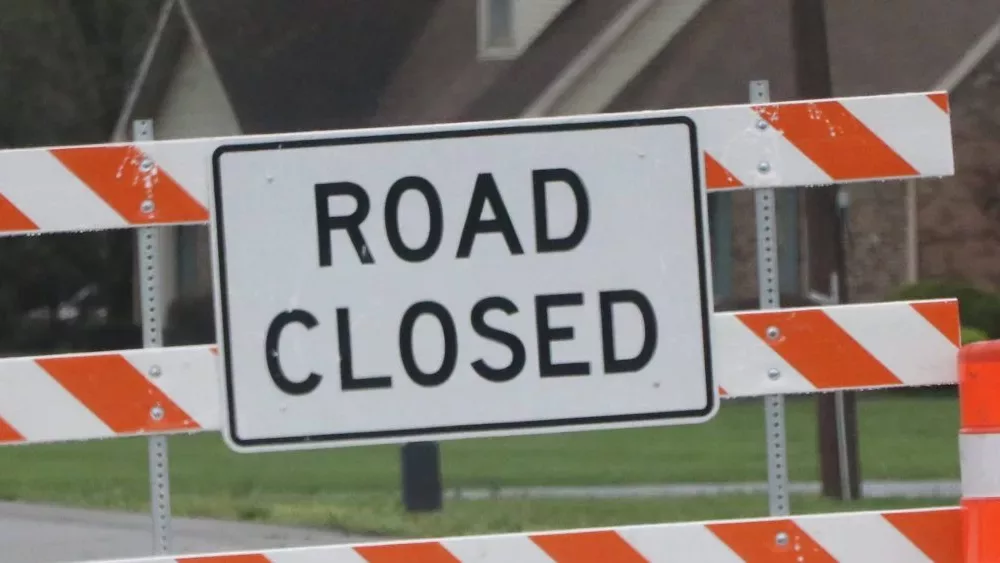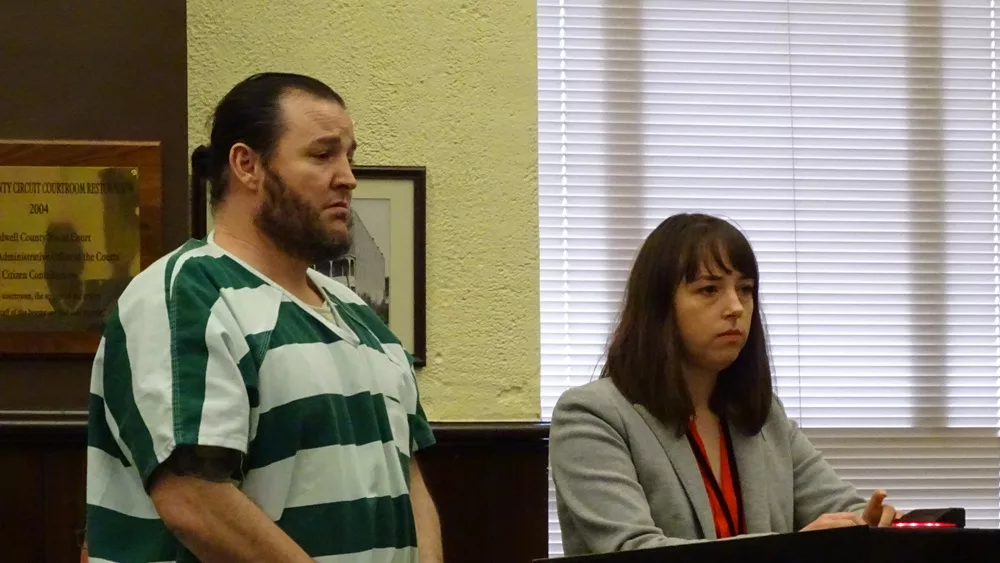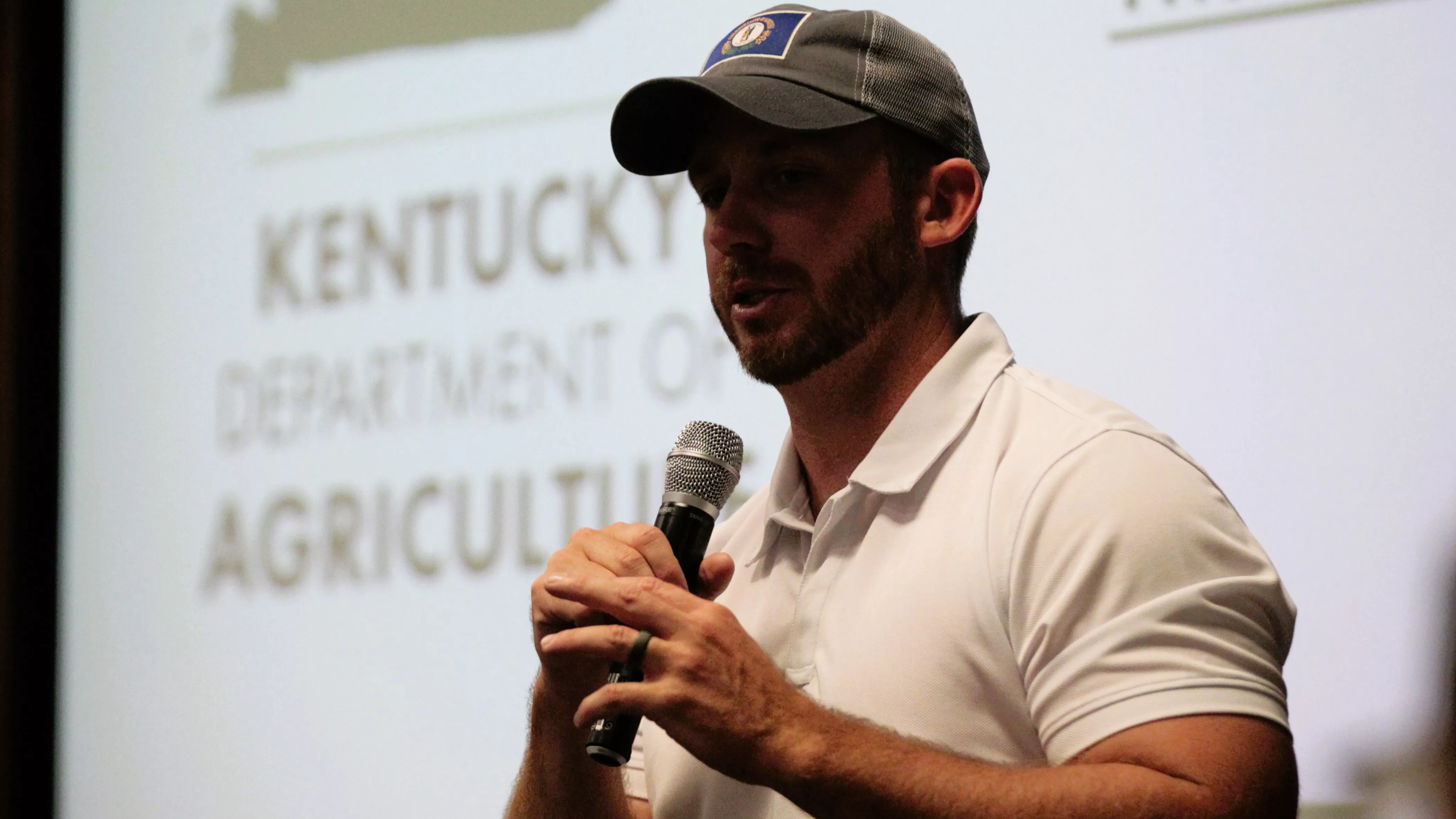
Looking to bring think tanks together across the Commonwealth, Kentucky Agriculture Commissioner Jonathan Shell made the first of many planned visits across the state Monday morning at Murray State University — headlining an “Agriculture Is Economic Development” Conference that brought together scores of civic leaders from this region.
This, he said, comes with four ideas that need to be married together, if the Bluegrass hopes to find a cutting edge in growth and job creation:
1) Focus on row crop infrastructure and research.
2) Improve and embrace local large-scale animal processing.
3) Create better food distribution networks and partnerships.
4) And allow on-farm retail and local marketing to flourish.
Shell called Hopkinsville Elevator Company “the best example” of an organization taking raw product, and finding its buyer in the Commonwealth.
Shell also noted that transportation of raw agriculture goods in Kentucky, and specifically in the southwest part of the state, is good — but could certainly improve.
Kentucky’s three main major airports, he noted, consume more than 1.2 billion gallons of aviation fuel annually — with UPS in Louisville and Amazon in Northern Kentucky guzzling most of that gas. UPS, in fact, drinks more than 7.3 million gallons every three days, while Amazon lands more than half its global traffic daily near Hebron.
As such, Shell said these companies are seeking alternative fuels like ethanol not even necessarily because of carbon reduction mandates, but for the promise of renewable, sustainable options to meet worldwide supply chains and demanding customers.
Combine this with the fact corn is key in Kentucky’s signature bourbons, as well as the feedstock in poultry production, and Shell added this is but one of many avenues in need of further exploration.
As for large-scale processing operations, Shell said they typically get a “bad reputation,” when the reality is far more promising.
According to Shell:
*30% of all corn grown in the Commonwealth goes to feed local and regional chicken farms;
*Most of the state’s cattle is raised from Elkton to Richmond, with less hooves on the ground, and more beef on the hook;
*And pork production is taking further root in Kentucky.
Shell called water “Kentucky’s biggest asset” over the next 50 years, with water treatment “its biggest issue,” while focusing on the evolution of cold storage and processing — as it pertains to produce — must remain of the utmost priority, especially as fruits and vegetables enter schools, homes, hospitals and other healthcare facilities on time, with fewer touches, and at safe temperatures.
Furthermore, Shell said farms and agricultural businesses could turn to more unorthodox methods for means — embracing agri-tourism and education as revenue streams.
Other forms of commerce in the agriculture/economic development Venn diagram: tax structure, logistics, site location, utilities, workforce, housing, supply chain, and university studies.
Shell’s full presentation can be found here:
